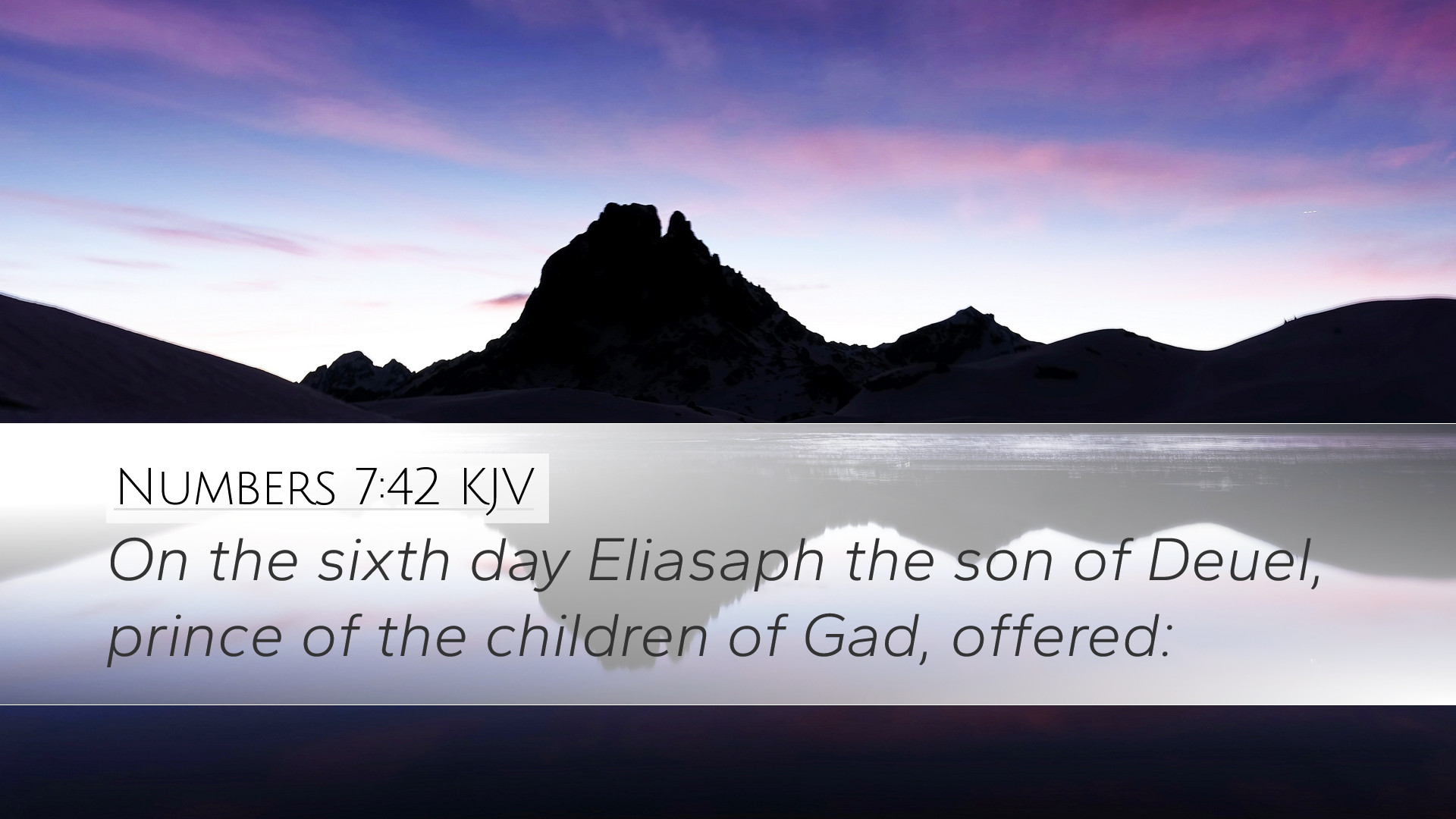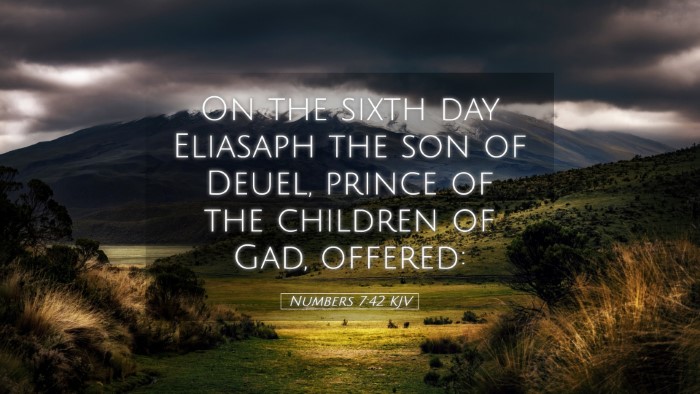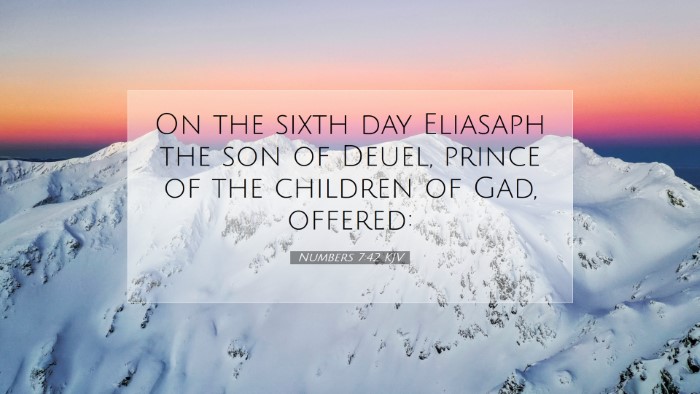Commentary on Numbers 7:42
Numbers 7:42 states:
"On the sixth day Eliasaph the son of Deuel, prince of the children of Gad, offered."
Introduction
This verse belongs to the section of the Book of Numbers that deals with the offerings presented by the leaders of the tribes of Israel during the dedication of the altar. In Numbers 7, we find a detailed account of the contributions made by each tribe, emphasizing their significance to the worship and communal life of the Israelites as they prepared to enter the Promised Land.
Historical Context
During the wanderings in the wilderness, the Israelites were organized into tribes, each led by a prince. The events in this chapter occur after the tabernacle's completion and consecration, highlighting the formation of the Israelite community centered around worship and service to God.
Significance of Offerings
-
Devotion to God:
The offerings signify the people’s dedication and gratitude toward God for His guidance and provision throughout their journey.
-
Leadership Role:
The princes, like Eliasaph, acted as representatives of their tribes, reflecting the collective spiritual responsibility of the community.
-
Unity and Identity:
The offerings emphasized unity among the tribes, reminding them of their shared identity as the chosen people of God.
Exegesis of the Text
Numbers 7:42 highlights Eliasaph as the prince of the tribe of Gad, offering on the sixth day. The choice of the day and the individual is significant for several reasons:
Eliasaph's Role
As the son of Deuel, Eliasaph embodies the characteristics of leadership and loyalty expected from the tribal chieftains. His position implies:
- Accountability: He bears the burden of representing his people before God.
- Responsibility: He ensures that his tribe fulfills its covenant obligation through meaningful contributions.
Implications of the Day
The sixth day holds a deeper meaning as well, symbolizing completeness and the advancement toward the fulfillment of God's promises. The number six is often associated with human effort, a reminder that while humans must be active in serving God, ultimate results stem from divine grace.
Theological Insights
Both the act of offering and the characters involved express important theological principles relevant to pastors and theologians:
1. The Concept of Sacrifice
Eliasaph’s offering mirrors the ultimate sacrifice provided by Christ. It points to the fulfillment of the sacrificial system that would be established in the future, which would culminate in Jesus’ atoning sacrifice.
2. The Role of Community
The offerings made by the leaders highlight the community aspect of worship. It reminds contemporary believers that worship is not an individualistic act but a communal responsibility.
3. The Nature of Leadership
Leaders like Eliasaph must have a heart oriented towards God, leading their people through acts of worship, thereby fostering a strong connection to God among the community.
Application for Today
As we reflect on Numbers 7:42, several applications emerge for modern believers:
-
Cultivating a Spirit of Generosity:
Just as the Israelites offered unto God, believers today are called to offer their time, resources, and lives in service to God and others.
-
Emphasizing Collective Worship:
The communal aspect of worship should be prioritized in church practices, encouraging members to participate actively and contribute to the life of the community.
-
Developing Leadership:
The character of leaders should reflect the qualities exhibited by biblical figures, fostering accountability and a commitment to serving God’s people.
Conclusion
Numbers 7:42, although a brief verse, encapsulates profound truths about leadership, worship, and community. By studying the offerings presented by Eliasaph, we are inspired to reflect on our own worship practices and leadership roles, urging each one of us to live in a manner that honors God and serves our communities faithfully.


